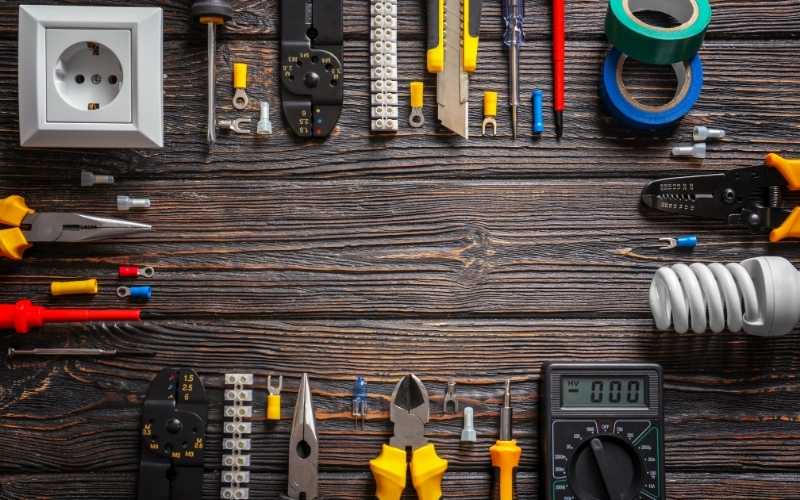Electricity lights up the world, and since Benjamin Franklin discovered it over 250 years ago, a lot of efforts have been made to harness its power and use it in our lives at home and in the workplace.
Harnessing this power requires the use of tools, electrical tools that allows us build efficient circuits that transfer this energy from one place to another within a building or structure.
An electrical circuit is usually made of a combination of wires, fuses, switches, socket outlets, wire connectors and so on. These are all connected together by a qualified electrician, making use of the tools listed in this article.
As an electrician, whether you’re still an apprentice learning the trade or you’re already a professional, having some or most of these tools is crucial.
These tools will not only make your job easier but will also make it faster, and you’ll look more professional when you arrive on a jobsite.
Here in this article, I’ve listed 20 of the most useful tools for electricians. Some of these you may already have, while others might be new to you. So, go through the list and see what’s missing from your toolbox.
Table of Contents
1. Outlet or receptacle tester
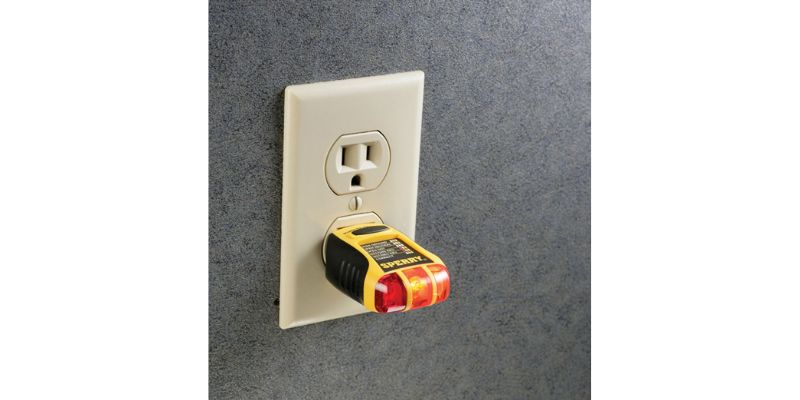
This power outlet tester will enable you test any standard 3-wire and GFCI protected 120V power outlets for 7 common wiring errors in any building.
It’s just plug and play with 7 neon lights showing the different wiring errors or conditions that could be tested.
2. Non-contact voltage tester
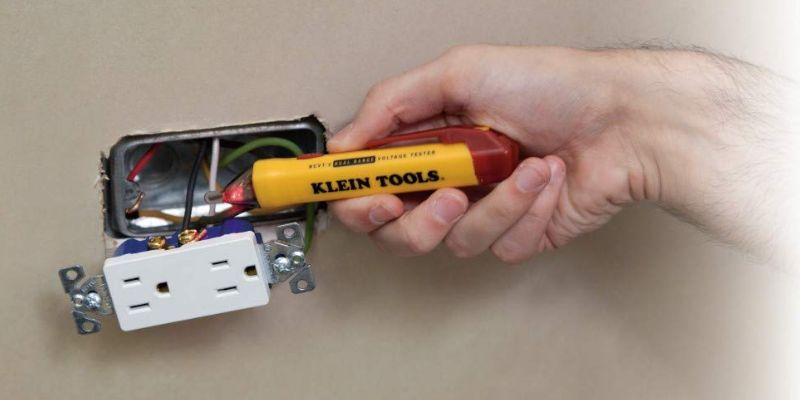
This Klein non-contact voltage tester can automatically detect voltage and indicate both low and standard voltage in cables, circuit breakers, cords, wires, lighting fixtures and outlets.
3. Demagnetizer / Magnetizer
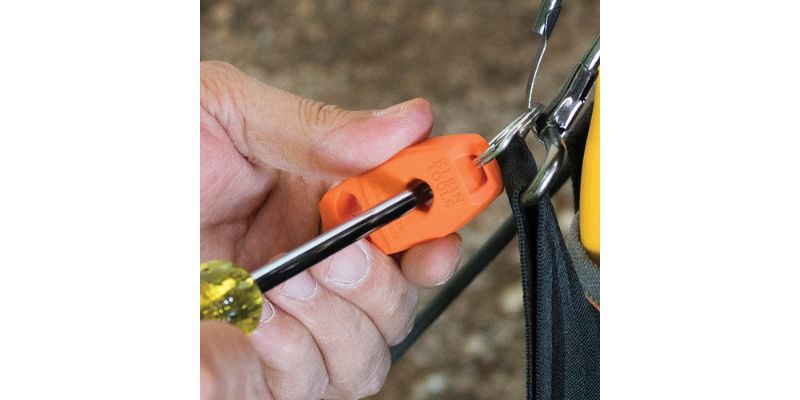
Magnetize and demagnetizer your screwdriver bits or any other tools you have in one swipe with this Klein tools MAG2 magnetizer and demagnetizer.
It’s very portable and you can take it with you anywhere you go.
4. Magnetic wristband
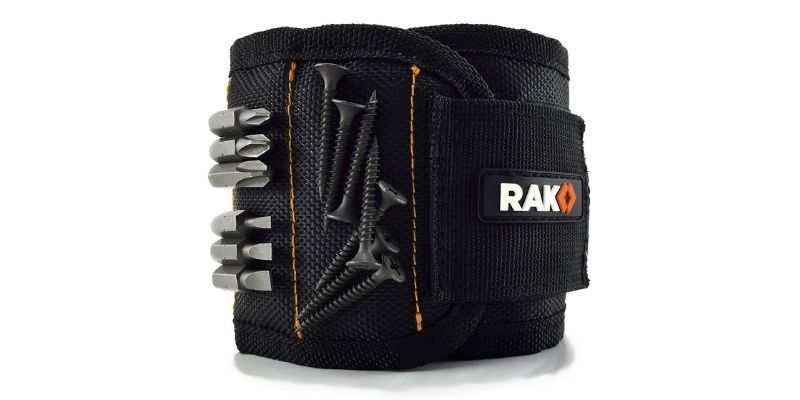
10 strong magnets are embedded in this wristband to hold nuts, screws, nails, drill bits, bolts, washers and any other small metallic part required for your electrical project.
It’s a perfect little tool accessory not only for electricians but for craftsmen in other trades.
5. Conduit fitting and reaming screwdriver
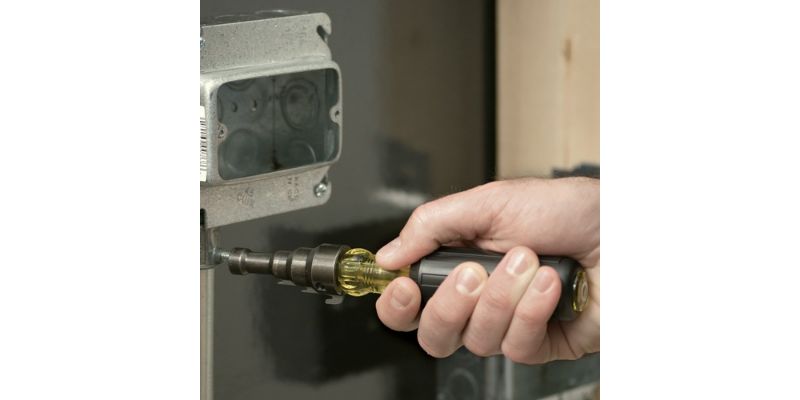
This conduit-fitting and reaming screwdriver can be used to ream and smooth ½ inch, ¾ inch and 1 inch thin-wall conduit pretty easily.
The screwdriver features a hooded-blade design which enables it to stay firm and prevent the tip from slipping out of screws, especially when you have to tighten hard-to-reach conduit fittings.
6. StripMeister automatic wire stripping machine
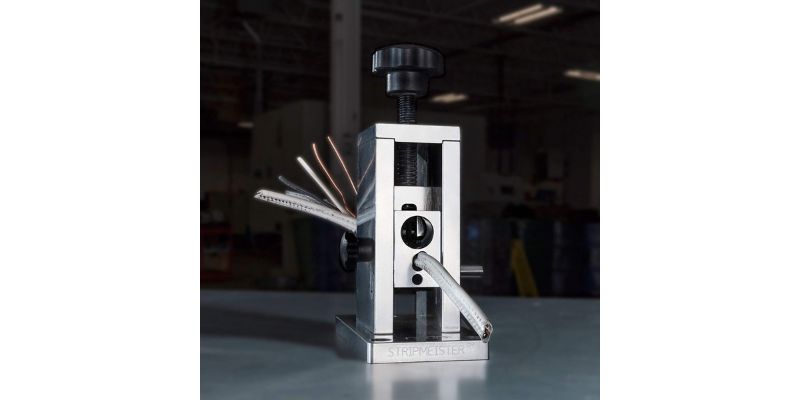
With this industrial grade wire stripper by StripMeister, you can strip the usable part of wires from 18 gauge to 250 MCM wires.
ROMEX and braided or stranded wires can also be stripped with it as well.
7. Automatic motorized wire stripping machine
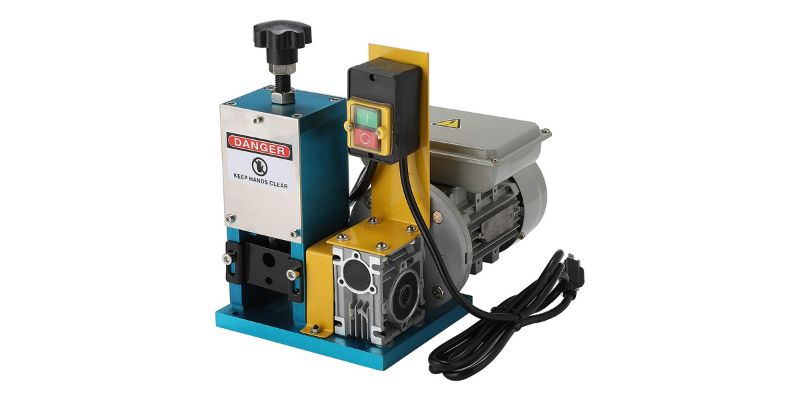
Strip all types of wire from 0.06 inch (1.5mm) up to 0.98 inch or 25mm wires with this CO-Z automatic motorized wire stripping machine.
This is the ideal wire stripping machine you need if you have lots of scrap wires to strip and recycle. You can also use it if you work with different types of wires everyday on the jobsite and you need an easy way of getting these wires stripped.
Made of aluminum allow, it’s well-constructed and will serve for a long time.
8. Wire twisting tool
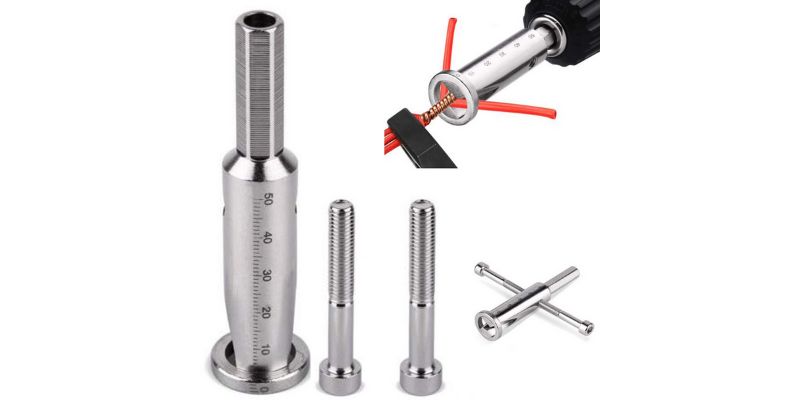
Why waste your time and get your fingers sore and cramped trying to twist wires with your hands when you can just use a wire twisting tool like this wire twisting tool?
It can twist and strip wires simultaneously so that you accomplish two tasks at once. It’s a highly effective tool every electrician should have in his toolbox.
9. Cable dispenser
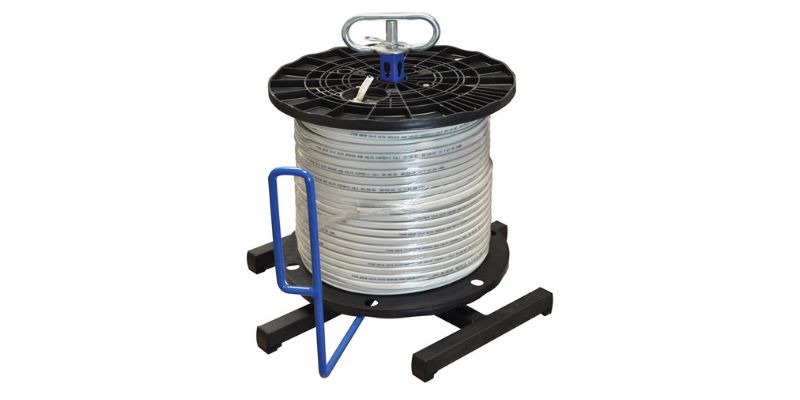
Nothing beats a good cable dispenser when you need one on the jobsite. You can mount this Madison cable dispenser on the floor or against the wall, and with it you can smoothly dispense coils of armored cable or even NM-B cables, preventing them from tangling while carrying out your projects.
10. Electrical maintenance tool carrier
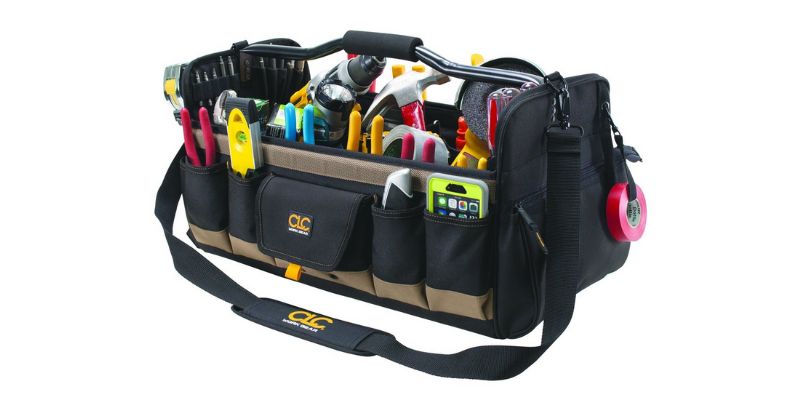
Electricians makes use of many hand tools and accessories like screwdrivers, pliers, hammers, wire strippers, levels, and even multimeters.
Carrying all these tools by hand is not only impossible but less than ideal. With an electrical maintenance tool carrier like this one from Leathercraft, you can manage and organize all your electrical hand tools easily.
11. Auto-ranging clamp digital multimeter
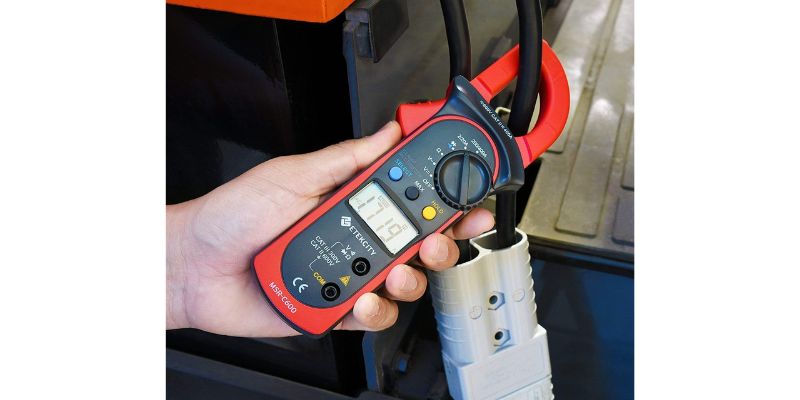
A multimeter is a must-have tool for electricians, whether professional or not. However, this auto-ranging clamp digital multimeter by Etekcity makes measuring AC/DC voltage and AC current as easy as possible.
You might already have your own multimeter, but this one from Etekcity is one of a kind, and will surely make your electrical projects easier.
You can also read resistance and diode continuity tests with it.
12. Wire crimping tool set
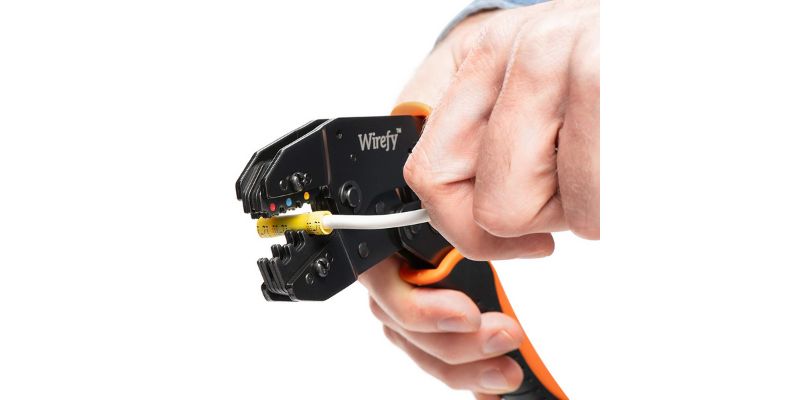
Wire crimping is a pretty common tasks when carrying out electrical projects. This wire crimping tool takes the work out of crimping wires. It’s one electrical tool you’ll find indispensable once you’ve made use of it.
13. Set of Insulated Screwdrivers
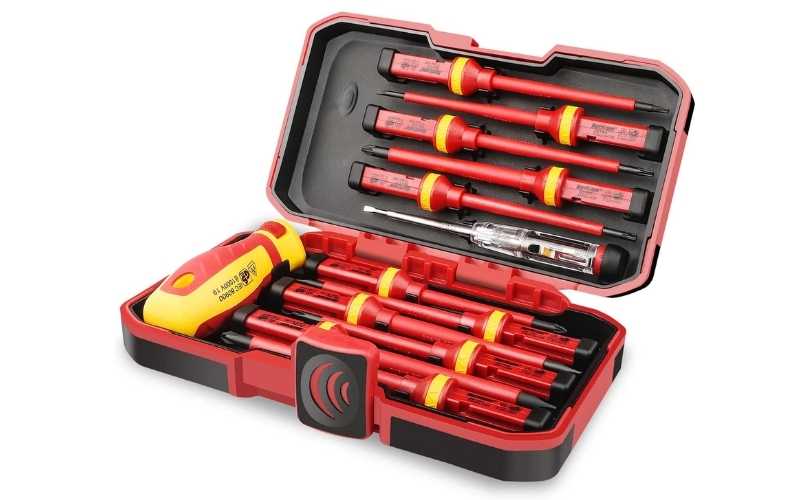
One of the most common tool you’ll find in any electrician’s tool belt is a screwdriver. Obviously, they’re used for turning screws in electrical components, fixtures and fittings like sockets, lamps, junction boxes and distribution board.
If you’re getting a screw driver for your electrical projects, it’s advisable to get the set that contains all the sizes you need. So that you can tackle any project that requires its use.
The set you choose should be insulated, of course, and should include the different types and sizes of screwdrivers like Philips, flat head, Torx and Pozidiv.
Getting yourself equipped with the set will allow you tackle different types of tasks which involve working on integrated circuits, fixing household appliances /electronics and even other tasks like assembling and disassembling furniture.
14. Micro Precision Screw Driver Set
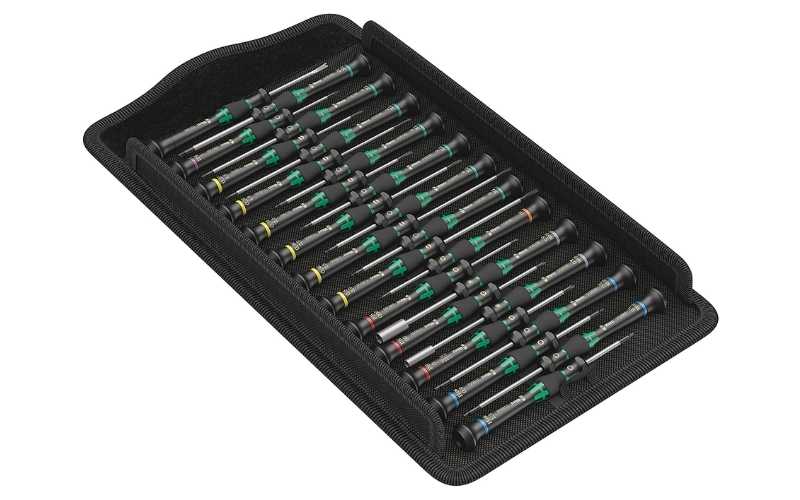
These are not necessarily very useful for carrying out wiring projects in a building. But if you find yourself handling electronics components quite often, then you’ll surely find a micro precision screwdriver set indispensable.
15. Multi-function Plier
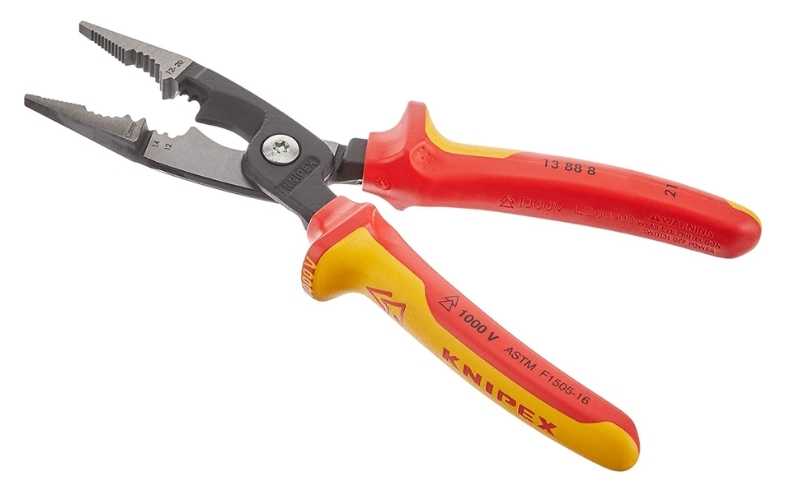
There are different types of pliers electricians use for different purposes such as cutting of wires, gripping, turning nuts and bolts, stripping and crimping of wires.
This multi-function plier combines the function of several other pliers into one. So, instead of carrying 3 or several other pliers at once, you get to carry just one. Thus, saving you the amount you could have spent in other tools, saving you from carrying more tool weight and creating extra space in your toolbox.
16. Electrician’s Hammer
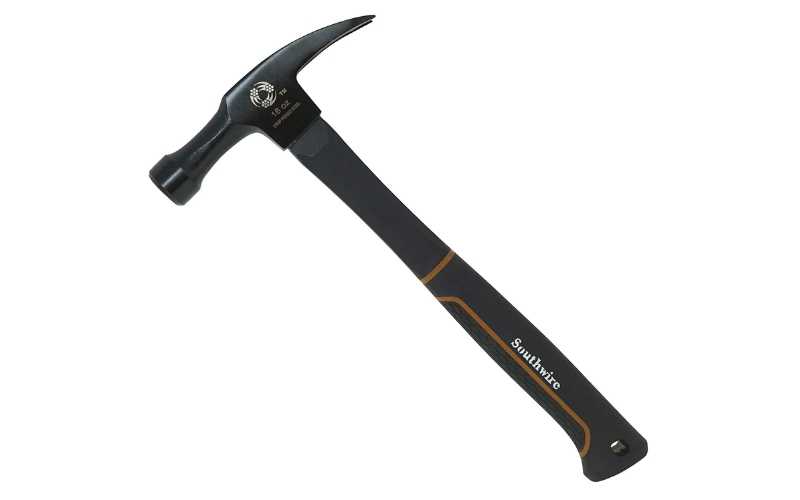
A hammer might seem like an odd tool when wiring a building, but there’re many uses for it when carrying out these projects.
An electrician’s hammer looks quite different from a carpenter’s hammer. They’re usually very straight with a small head, a flat top and sharp claw.
They’re used for driving nails, removing staples, and they have long narrow necks for reaching into tight areas like outlet boxes.
17. Tape Measure
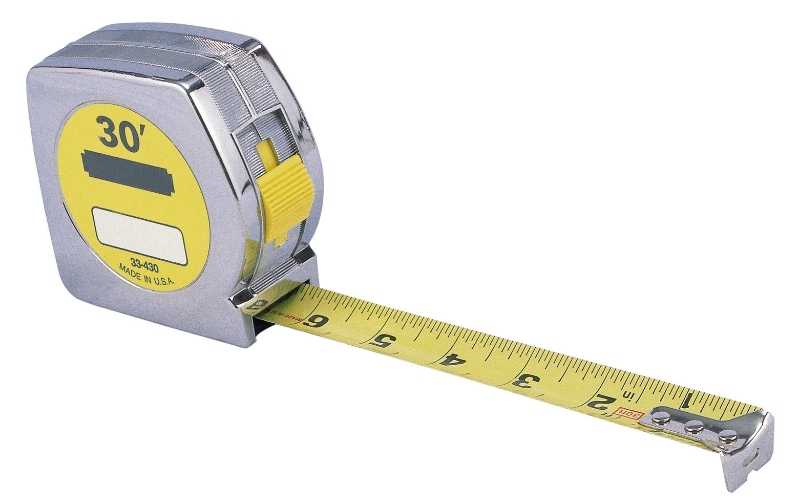
As an electrician, there’ll always be the need to take measurements such as the length of wires, length of conduits, length of walls and so on. That’s why having a tape measure is very important, allowing you to make accurate measurements and get the right quantity of materials for your job.
18. Cable Knife
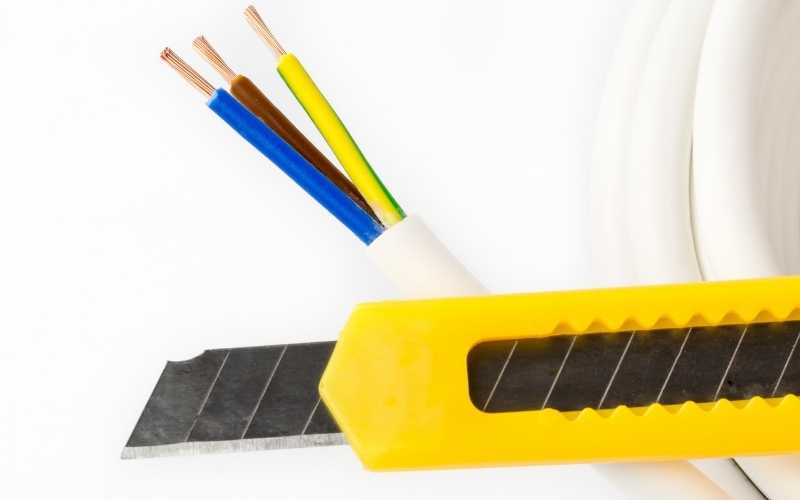
19. Studbuddy – Magnetic Stud Finder
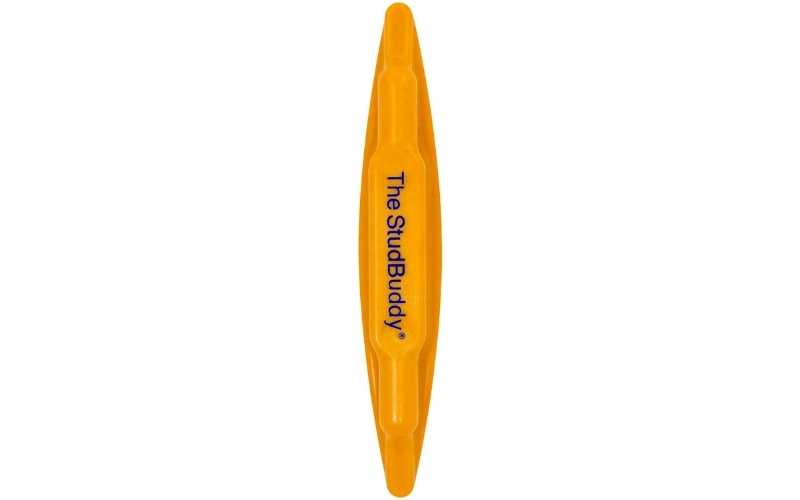
If you want to rewire a building after drywall has been installed or if you want to install new fixtures like sockets, hang an appliance like a TV or a water heater, knowing where the studs are located in the wall is very important.
That’s why the Studbuddy magnetic stud finder is very important for electricians. The magnetic function allows it to locate studs behind drywall by simply attracting and attaching itself to nails, screws and other metallic components embedded in the studs.
20. Ladder
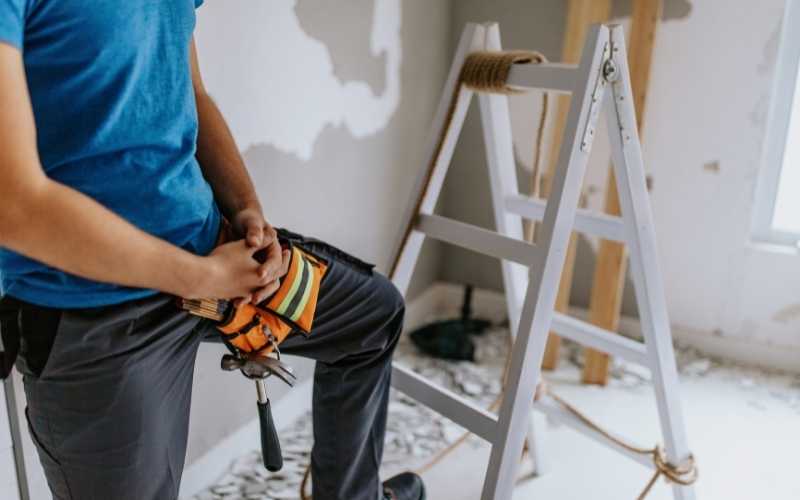
As an electrician, most projects will require the use of a ladder, and since the homeowner might not have one, it’s important that you have your own. A ladder will allow you to work comfortably above the ground like when fixing light fixtures, installing conduits and so on.

